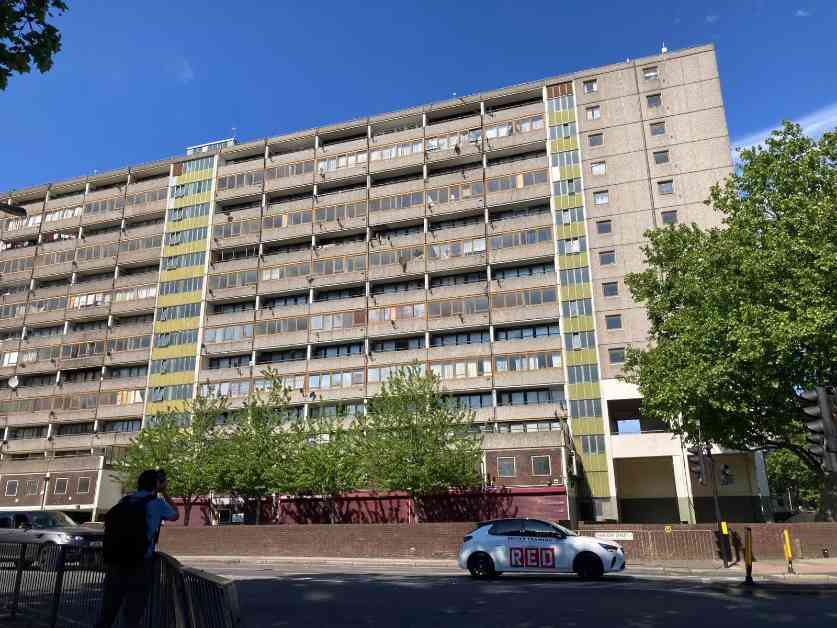Regeneration Projects Leading to Increased Council Housing Rents in London
Regeneration schemes on major estates in London are having a significant impact on social housing rents for low-income residents, according to a recent report from the Public Interest Law Centre (PILC). The study, conducted by Dr. Joe Penny from UCL, focused on six estate renewal projects across the city and revealed troubling trends in the affordability of social housing.
One of the key findings of the report is the expected rise in social housing costs once the redevelopment of the Aylesbury estate in Thurlow Street, Walworth, is complete. The study estimates that the weekly rent for a two-bedroom housing association flat on the regenerated Aylesbury estate will be £212.90, significantly higher than the average rent of £125.32 for a two-bedroom Southwark council flat. This disparity highlights the growing challenge of affordability for low-income Londoners in need of social housing.
Aysen Dennis, a 66-year-old resident who recently moved to a new home in Bradenham Court as part of the Aylesbury estate regeneration, shared her concerns about the rising rents. Since moving into the refurbished block, her rent has increased from £120 to £210, including service charges. Ms. Dennis expressed dissatisfaction with the quality of the housing, citing cheap construction and ongoing electrical issues as major concerns.
Furthermore, Ms. Dennis raised alarm about potential fire hazards in the new block, pointing out the lack of essential safety features such as extractor fans in kitchens and limited escape routes. She emphasized the importance of adequate safety measures in social housing developments to protect residents in the event of emergencies.
The report also highlighted the cost implications of regeneration projects on other estates, such as Elephant Park where the former Heygate estate in Walworth once stood. According to the findings, the average social rent for a three-bedroom housing association flat in Elephant Park is £186.62 per week, compared to £137.32 for an average council flat in Southwark. This significant difference in rent prices further underscores the affordability challenges facing residents in regenerated social housing developments.
In response to these findings, Dr. Joe Penny emphasized the urgent need for a “fundamental rethink” of estate regeneration practices in London. He pointed out that the current model is failing council and social housing tenants, as well as those on housing waiting lists, by pushing rents beyond what low-income individuals can afford. Dr. Penny stressed the importance of addressing these affordability issues amidst a deepening housing crisis in the capital.
Councillor Helen Dennis, the cabinet member for new homes and sustainable development in Southwark, acknowledged the affordability concerns raised in the report. She reassured residents that the council is committed to building truly affordable homes and emphasized the importance of providing modern, safe, and high-quality housing for all residents. Councillor Dennis explained that the differences in rent prices between new build council properties and older properties are due to valuation methods and government policies.
The study also highlighted concerns about the reduction of social and affordable housing in regeneration schemes, with the exception of one project in Camden. This trend raises questions about the long-term impact of estate renewal projects on the availability of affordable housing for low-income residents in London. The report called for a more comprehensive approach to estate regeneration that prioritizes affordability and sustainability for all residents.
Overall, the findings of the report shed light on the challenges facing low-income Londoners in accessing affordable social housing amidst ongoing regeneration projects. As the city grapples with a housing crisis, it is essential for policymakers, developers, and community stakeholders to work together to ensure that regeneration schemes prioritize affordability and accessibility for all residents. Only through collaborative efforts can London address the pressing housing needs of its most vulnerable populations and create a more equitable and inclusive city for all.


